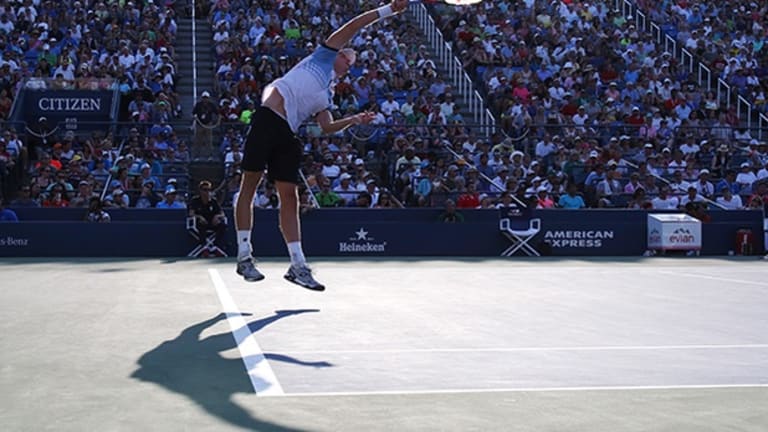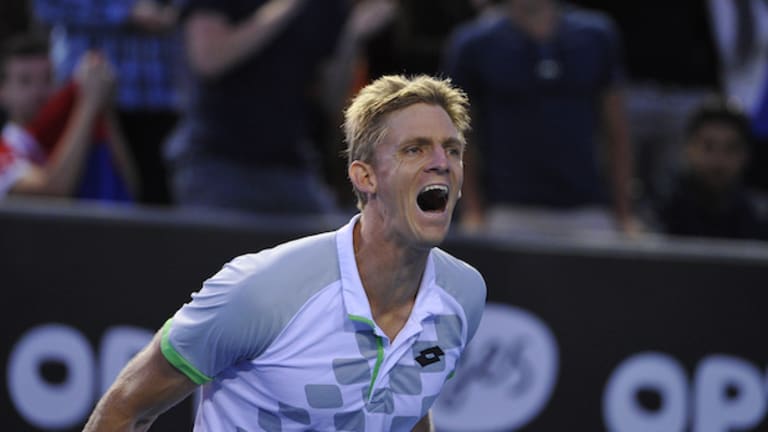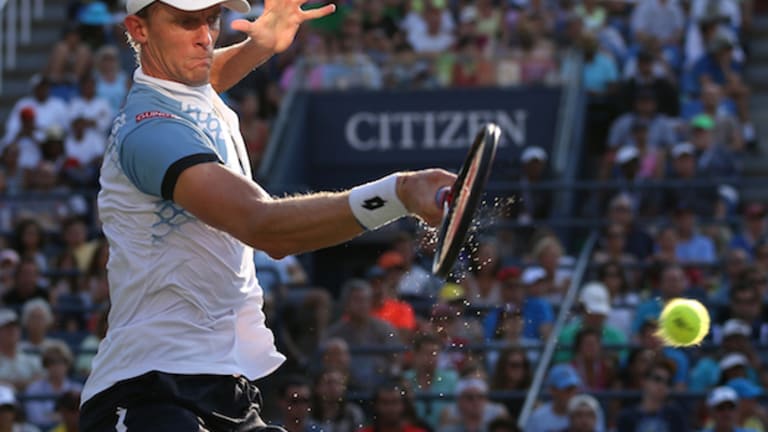Anderson was just 7 years old when apartheid was officially abolished in his homeland. He and his younger brother, Greg, were raised in upscale Hyde Park in Sandton, an affluent suburb of Johannesburg. His parents, Mike and Barbara, owned a successful accounting firm and were club-level tennis players who introduced their boys to the game on a backyard court. Though a bit rusty and worn down, it would dry in 10 minutes after a rainfall because of the many cracks in its hard surface.
Coached mainly by their father, the boys would play against each other and then hit against a big concrete wall, pretending to be Andre Agassi, whom they saw on video hitting against a wall at the Nick Bollettieri Tennis Academy in faraway Florida. They would eventually rank among the top in their age groups—“Kevin was always better,” Greg notes—and were both recruited to play college tennis in the U.S. Greg went to the University of Kentucky and then Morehead State; Kevin followed fellow South African, coach Craig Tiley, to the University of Illinois.
“Kevin has always kept an unassuming, low profile,” says Greg, now the director of the Armonk Tennis Academy in New York. “It’s an innate personality type. He has an old-fashioned, disciplined game style and always plays within himself. That’s why his progress has been steady and gradual.”
Anderson thrived in the two-and-a-half years he spent at Illinois. He was named an All-American three times, won an NCAA doubles title and led his team to a runner-up finish at the 2007 NCAA Championships. Off the court, Anderson studied liberal arts and business, and he met Kelsey O’Neal—a golfer who was majoring in finance and accounting—during a mandatory athlete study hall. They hit it off and were married four years later.
Kelsey now travels full-time with her husband on a team that includes Castorri, coaches Neville Godwin and Jay Bosworth, and physio Carlos Costa. Kelsey is responsible for such tasks as booking flights and accommodations to managing the budget. She and Kevin, along with his former coach, G.D. Jones, also recently launched a website, realifetennis.com, that uncovers training techniques and tactics used by top pros, and gives a behind-the-scenes look at the sometimes secret lives tour players lead.
“There is a big side of Kevin that people, except those closest to us, don’t get to see,” Kelsey says. “He is a lot more intellectual than people give him credit for. He likes to get to the bottom of things and see how they work. He picked up the guitar and was playing it within a month. He reads all the time. There is a definite disconnect between his on-court persona and his real-life one. He’s not a dumb jock.”
That’s a fact not lost on Anderson’s tour colleagues, who voted him to be a member of the ATP Player Council. As such, he is responsible for helping to sort out some of the sport’s biggest messes, including the recent match-fixing scandal and the ongoing issue of performance-enhancing drug use.
“Regarding match-fixing, I have a strong viewpoint that it’s pretty black-and-white, and there’s no room for leniency,” says Anderson, who says he was once approached to throw a match at a low-level tournament, which he refused to do and immediately reported it to officials. “With drug testing, there are a few more gray areas, and that’s where it’s tricky.”
A few months ago, Anderson was at a pharmacy looking for something to quell a nagging cough. The over-the-counter medicine he almost chose contained an ingredient that could have forced a positive drug test and gotten him banned from competition. As such, Kelsey checks every ingredient on every label, even the powder on a can of protein used to make smoothies at a tournament concession booth.
Anderson, who has lived in the United States for 11 years, is in line to receive his U.S. citizenship later this year. But he has already decided that he will not represent his adopted land in either Davis Cup or the Olympics, both of which he has already played under the South African flag. Despite his time away from Johannesburg, he still feels very much tied to his homeland, preferring to watch cricket to baseball and even importing such native delicacies as Biltong, a salty dried meat similar to beef jerky—only better, he insists.


